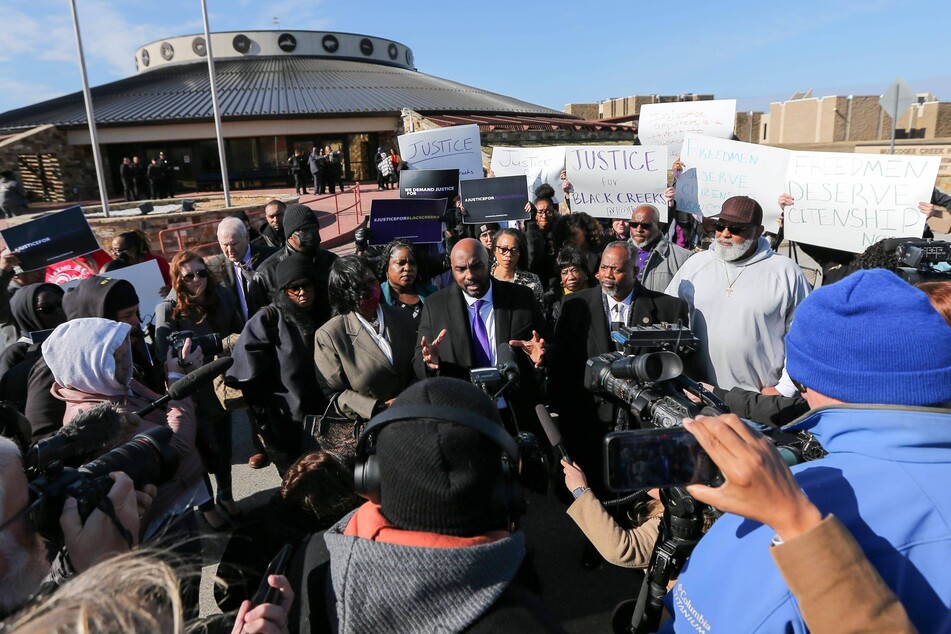Black Creeks demand recognition of tribal citizenship rights in new court filing
Okmulgee, Oklahoma - Black Creeks are continuing their legal battle for recognition of tribal citizenship rights in a new brief filed before the Muscogee Nation Supreme Court.

Plaintiffs Rhonda Grayson and Jeff Kennedy, together with their legal representatives, are urging the Muscogee Nation Supreme Court to take a stand against the selective enforcement of treaty obligations and denial of basic rights to descendants of Freedmen.
Muscogee Creek Freedmen were people of African descent who were either enslaved by members of the Muscogee Creek Nation, lived among the Creeks as free Blacks, or were listed on the Dawes Rolls as interracial Creeks.
The Creek Treaty of 1866 guaranteed that Freedmen and their descendants "shall have and enjoy all the rights of native citizens."
But those citizenship rights – and all the accompanying benefits – were suddenly stripped from Black people when the Muscogee Creek Nation adopted a new constitution in 1979.
Muscogee Nation District Judge Denette Mouser in September ruled in favor of Grayson and Kennedy, who had sued the tribe's citizenship board for rejecting their belonging.
But Muscogee authorities quickly sought to appeal the decision and obtained a stay in the ruling – the latest act of denial in what plaintiffs have described as an egregious pattern of anti-Black racism.
"Judge Mouser's ruling aimed to address 44 years of explicit discrimination against Creek Freedmen, establishing a historic precedent for recognizing their rights," attorney Damario Solomon-Simmons said in a statement shared Friday.
"We're now before the Muscogee Supreme Court, urging the Nation’s highest court to face its history, follow the rule of law, and advance toward a future that embraces the principles of inclusion and justice enshrined in the Treaty of 1866."
Black Creeks' "hard fight for justice"
For Black Creeks, the ongoing court case is a battle to reclaim their ancestral birthright amid decades of wrongful denial.
"We have fought a long, hard fight for justice, and now we’re asking the Supreme Court to do the right thing and affirm the district court’s just and lawful decision upholding our rights under the 1866 Treaty, which has been the law for more than 150 years," said plaintiff Jeff Kennedy.
"Our fates are now in the hands of the Muscogee (Creek) Nation Supreme Court," added Rhonda Grayson.
"We are hopeful that the Nation’s high court will find it in their hearts to do what is right, which is to end the racially discriminatory and illegal exclusion of Creek Freedmen like myself and my co-plaintiff, Mr. Kennedy from citizenship in the [Muscogee Creek Nation], reaffirm the Treaty of 1866, and reopen the citizenship rolls for Creeks of African descent who are entitled to citizenship pursuant to the Treaty."
Cover photo: IMAGO / USA TODAY Network
